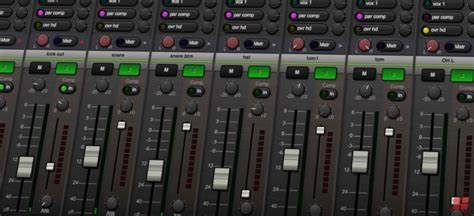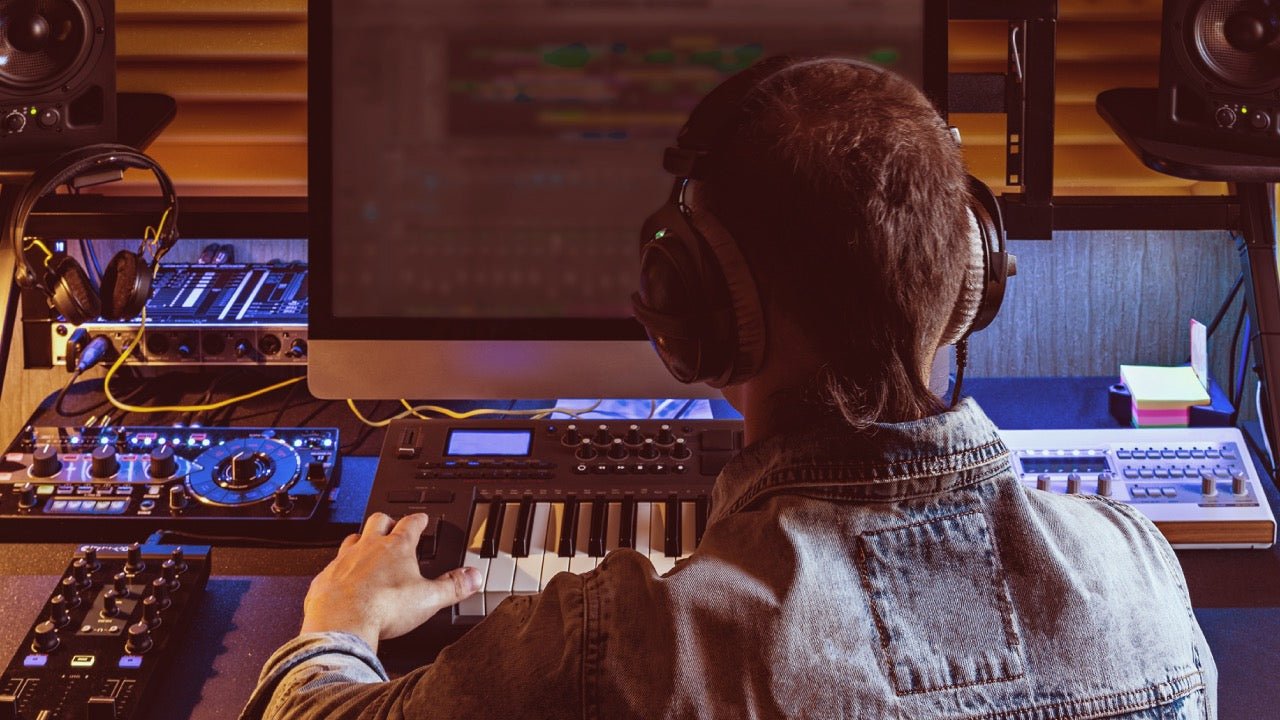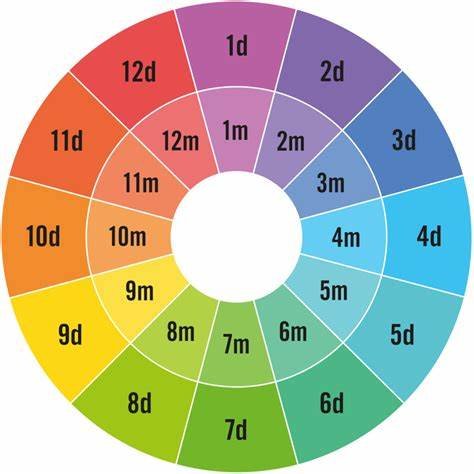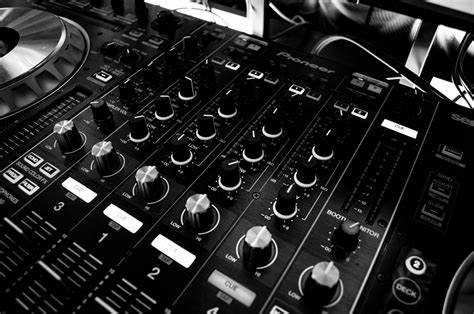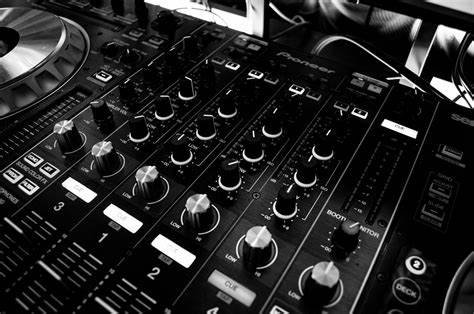Music mixing software plays a crucial role in the creative process of DJs, music producers, and sound engineers. With advancements in technology, there are numerous tools available today that cater to different styles and expertise levels. Whether you’re just getting started or you’re a seasoned professional, choosing the right software can significantly improve your music production and performance. As we move into 2025, the options available are more powerful, intuitive, and versatile than ever before.
Let’s explore some of the best software for music mixing in 2025, highlighting their features, usability, and the types of artists they’re best suited for.
1. Ableton Live 11
Best For: Electronic music producers, live performers
Ableton Live has long been a favorite among electronic music producers and live performers due to its powerful features and intuitive workflow. With version 11, Ableton has introduced several improvements that make it even more versatile.
- Key Features:
- Session View: Great for live performances, this feature lets you loop and trigger clips in real-time.
- MIDI Editing: Offers robust tools for MIDI editing, making it a great choice for producers working with virtual instruments.
- New Devices and Effects: Ableton Live 11 adds innovative devices such as Hybrid Reverb and Spectral Resonator, expanding sound design possibilities.
- Comping: A new feature that allows users to record multiple takes and then compile them into a perfect final track.
- Why It Stands Out: Ableton Live’s seamless integration between production and performance modes makes it ideal for DJs and live performers who need flexibility in real-time sound manipulation.
2. Serato DJ Pro
Best For: DJs, club performers, and turntablists
Serato DJ Pro continues to be one of the most widely used software by professional DJs. Known for its reliability, low latency, and user-friendly interface, it is perfect for those who perform in clubs or events.
- Key Features:
- Library Management: Excellent tools for organizing music and playlists.
- Timecode Control: Serato allows DJs to use vinyl or CDJs with digital music files, combining traditional DJing with modern technology.
- High-Quality Sound Engine: Provides crystal-clear sound quality, essential for any live performance.
- Performance Pads: Customizable performance pads for triggering cues, loops, and samples.
- Why It Stands Out: Serato DJ Pro excels in real-time performance, making it a go-to tool for professional DJs. It supports a wide range of hardware and integrates seamlessly with controllers, mixers, and turntables.
3. Traktor Pro 3
Best For: DJs, music producers, and performers who want advanced features
Traktor Pro has been a strong contender in the DJ software market for years. The software is known for its rich feature set, advanced effects, and customizable interface. In 2025, it continues to be a powerhouse for DJs and live performers.
- Key Features:
- Track Decks: Users can manipulate tracks with ease through four decks, offering excellent control over playback.
- Mixer FX: Traktor Pro 3 has a suite of performance effects that can be applied live for creative transitions.
- Stems: Traktor’s Stems feature lets users isolate individual elements of a track (like vocals, bass, drums) for remixing and live performance.
- Rekordbox Integration: You can transfer playlists and tracks from Rekordbox directly to Traktor, improving compatibility with other DJ setups.
- Why It Stands Out: Traktor Pro 3 is known for its advanced features, giving DJs greater control over their mixes. It’s ideal for DJs who need full control over their live performances and enjoy experimenting with different effects and remixing techniques.
4. Logic Pro X
Best For: Music producers, songwriters, and sound designers
While Logic Pro X is primarily known as a production tool, it’s also a great software for mixing. With its array of powerful tools for both recording and editing, Logic Pro X remains one of the most robust digital audio workstations (DAWs) available.
- Key Features:
- Comprehensive Mixing Tools: Offers a wide variety of mixing plugins, including EQ, compression, reverb, and delay.
- Live Loops: Similar to Ableton’s Session View, Logic’s Live Loops allows producers to trigger loops and sequences in real-time.
- Advanced MIDI Control: Logic Pro X offers unparalleled MIDI sequencing, ideal for producers working with virtual instruments.
- Drum Kits and Sound Libraries: The software comes with a large selection of pre-made drum kits, sound effects, and loops.
- Why It Stands Out: Logic Pro X’s deep integration of MIDI, audio, and virtual instruments make it a top choice for producers looking to create polished mixes and arrangements in a DAW.
5. FL Studio
Best For: Beatmakers, electronic music producers, and beginners
FL Studio, often referred to as FruityLoops, has earned a reputation as one of the best DAWs for beginners due to its intuitive interface and ease of use. However, its feature set is also robust enough to satisfy experienced producers.
- Key Features:
- Pattern-Based Workflow: FL Studio uses a pattern-based system for creating music, allowing for efficient workflow and creativity.
- Huge Plugin Library: Comes with a variety of built-in plugins for synthesis, mixing, and sound design.
- Step Sequencer: One of FL Studio’s most iconic features, it lets you program drum patterns and loops quickly.
- Automation Clips: You can easily automate volume, effects, and parameters for complex sound manipulation.
- Why It Stands Out: FL Studio’s user-friendly interface and powerful tools make it an excellent choice for beginner producers who want to dive into music mixing and production without feeling overwhelmed.
6. Virtual DJ 2025
Best For: DJs, mobile DJs, and beginners
Virtual DJ is one of the most user-friendly DJ software options on the market. While it is often seen as a beginner’s choice, its versatility and robust feature set make it a great option for mobile DJs and hobbyists.
- Key Features:
- Automatic Beatmatching: Virtual DJ offers automatic beatmatching, which is helpful for beginners still learning the ropes.
- Wide Hardware Compatibility: It works with a variety of controllers, mixers, and even timecode vinyl.
- Cloud Integration: Virtual DJ allows DJs to stream music directly from online platforms and integrates with cloud storage.
- Video Mixing: Offers the ability to mix video along with audio tracks, a great feature for creating multimedia performances.
- Why It Stands Out: Virtual DJ 2025 is incredibly versatile and ideal for DJs on the go. Whether you’re playing at a wedding, corporate event, or club, this software offers everything you need in a simple and intuitive interface.
7. PreSonus Studio One 6
Best For: Music producers, audio engineers, and those mixing for commercial release
PreSonus Studio One is gaining momentum in the music production world, offering a blend of simplicity and powerful features for mixing and mastering music. It is favored by music producers who need a comprehensive, easy-to-use DAW for professional production.
- Key Features:
- Integrated Mixing Console: The software features an intuitive mixing console with drag-and-drop functionality for quick edits.
- Advanced Mastering Tools: PreSonus Studio One has built-in tools for mastering, making it easy to polish your final mix.
- Chord Detection: This tool automatically detects the key and chords in your music, helping you to stay in key when mixing.
- Real-Time Collaboration: Studio One offers cloud-based real-time collaboration, perfect for remote teams working on the same project.
- Why It Stands Out: Studio One 6 combines ease of use with advanced tools, making it perfect for both beginners and professionals. It’s particularly suitable for those who need to produce, mix, and master in a single platform.
Conclusion
The best software for music mixing in 2025 depends on your specific needs, style, and level of expertise. From the versatility of Ableton Live and Traktor Pro 3 for DJs to the powerful production tools of Logic Pro X and FL Studio for producers, there is no shortage of excellent options. Each software offers unique features that cater to different types of creators—whether you’re performing live, producing tracks, or mixing audio for a commercial release.
Selecting the right software will not only streamline your workflow but will also empower you to take your music mixing skills to the next level.







